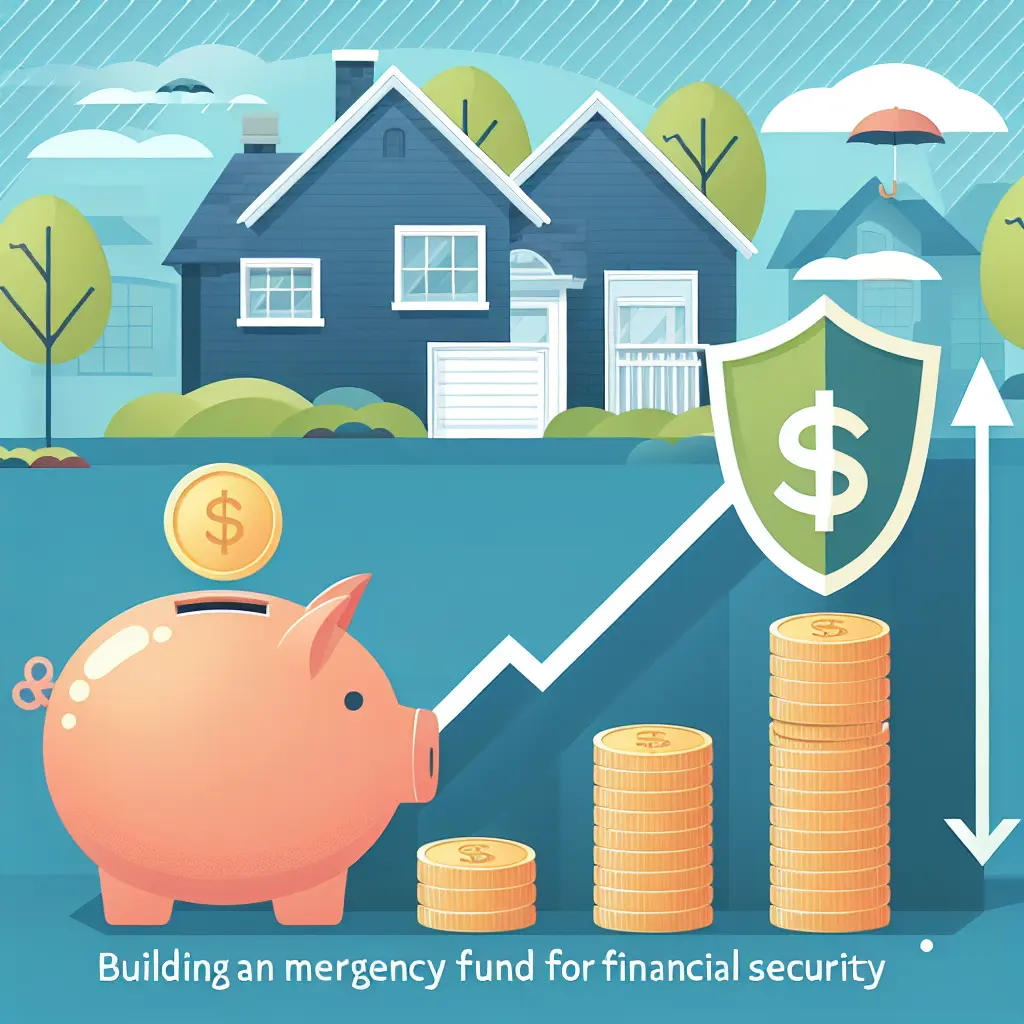
In today's ever-changing economic landscape, financial security is a cornerstone of personal finance and peace of mind. At the heart of achieving financial stability lies the concept of building an emergency fund—a crucial financial safety net designed to protect against unexpected expenses. Whether you're navigating sudden medical bills, car repairs, or job loss, having a well-structured emergency savings account can mean the difference between financial resilience and undue stress.
Understanding the Importance of an Emergency Fund
Saving for emergencies isn't just about stashing away money; it's about financial preparedness and strategic money management. By prioritizing an emergency fund, you're setting the stage for greater financial independence and ensuring you're equipped to handle life's surprises with confidence. Budgeting for emergencies should be an integral part of your financial planning, reinforcing your financial stability and helping you achieve your emergency fund goals.
Recent Developments and Their Implications
The economic landscape is continuously evolving, influenced by diverse factors from technological advancements to political shifts. For instance, in a notable development, 18,000 women are set to drive and own e-rickshaws, reflecting a shift towards empowering women economically and environmentally friendly transport solutions (The Economic Times). This empowerment not only promotes financial independence but also underlines the importance of having an emergency fund, as these women will need to be prepared for any unexpected maintenance costs or income fluctuations.
Similarly, the increase in Maharashtra's election budget by 66% compared to 2019 highlights economic fluctuations and potential market uncertainties (The Hindu). Such unpredictability makes it crucial for individuals to maintain robust emergency savings accounts to buffer against economic turbulence.
Strategies for Building Your Emergency Fund
Start Small, Think Big
Begin by setting aside small amounts regularly. Over time, these contributions will accumulate into a significant safety net.
Set Clear Goals
Define your emergency fund goals based on your lifestyle and monthly expenses. A common recommendation is to save three to six months' worth of living expenses.
Automate Your Savings
Automating transfers to your emergency fund can ensure consistent saving without conscious effort.
Prioritize High-Yield Accounts
Consider placing your emergency savings in high-yield savings accounts to maximize growth while maintaining liquidity.
Review and Adjust Regularly
Periodically review your savings strategy and adjust contributions as your financial situation changes.
Balancing Current Needs with Long-Term Security
While it's important to build an emergency fund, balancing immediate needs with long-term financial security is crucial. For example, repaying the unconditional love of our parents through financial support may be a priority for some (Forbes), yet it should not overshadow the necessity of preparing for personal emergencies.
Similarly, as highlighted by the restricted attendance at the United Nations General Assembly by President Tinubu to authorized officials only (Al Jazeera), maintaining a focused approach on essential goals—such as building an emergency fund—ensures that resources are efficiently allocated.
Leveraging Technology and Tools
The growing prominence of big data tools and market analysis emphasizes the importance of utilizing technology in personal finance (MarketWatch). Leveraging budgeting apps and financial planning software can help track expenses, forecast savings needs, and manage your emergency fund effectively.
Practical Tips for Financial Preparedness
Regularly Evaluate Your Spending: Conduct monthly audits of your expenses to identify areas where you can cut back and redirect funds into your emergency savings account.
Utilize Financial Windfalls Wisely: Tax refunds, bonuses, or monetary gifts should be directed towards bolstering your emergency fund whenever possible.
Educate Yourself Continuously: Stay informed about personal finance trends and updates through reputable sources such as Investopedia or NerdWallet.
Ensuring Financial Resilience Amidst Unexpected Expenses
Financial resilience involves being prepared for unexpected expenses without compromising long-term goals. By building an emergency fund, you're equipping yourself to handle life's surprises with confidence. Whether dealing with unforeseen medical emergencies or sudden unemployment, having a dedicated reserve ensures that these events don't derail your financial stability.
The Role of Astrology in Financial Planning?
Interestingly, even today's horoscope predictions can subtly remind us of the unpredictability of life (Astrology.com). While not a primary tool for financial planning, acknowledging uncertainty reinforces the need for a solid emergency fund.
Conclusion: Navigating Financial Security with Confidence
Building an emergency fund is a fundamental step towards achieving financial security in an ever-evolving world. As highlighted, this financial safety net acts as a buffer against unexpected expenses, such as medical emergencies or job loss, fostering financial resilience and reducing stress. Emphasizing the importance of financial preparedness encourages a commitment to long-term financial independence through strategic planning and consistent savings.
The journey to a robust emergency fund involves starting small and thinking big, automating savings, and prioritizing high-yield accounts to maximize growth. Regularly reviewing and adjusting your strategy ensures alignment with your evolving financial landscape. It's also crucial to balance immediate needs, such as supporting family, with the imperative of personal financial security. Leveraging technology and tools can streamline this process, enhancing your ability to track expenses and plan effectively.
Moreover, staying informed about economic shifts underscores the need for a solid emergency fund amidst market uncertainties. Integrating insights from reputable sources like Investopedia and NerdWallet enriches your financial acumen.
As we conclude, consider sharing your experiences or thoughts on building an emergency fund in the comments below. Your insights could inspire others in their financial journey. Remember, financial resilience is within your reach—with a thoughtful approach and unwavering dedication, you're setting yourself up for a secure future.
Here's to building a foundation that empowers you to face life's uncertainties with confidence. Stay proactive and committed to your financial well-being.
Warm regards,
Felicity Grove